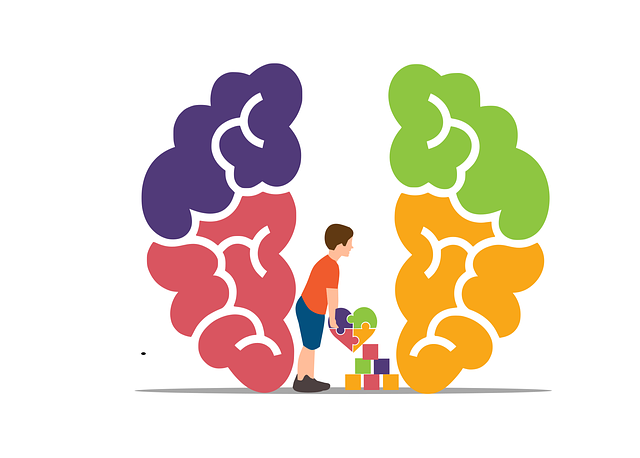Anxiety, a common yet debilitating condition, can be managed effectively with help from specialized services like Englewood Eating Disorders Therapy. Recognizing physical symptoms, understanding triggers (from stress to environments), and adopting holistic strategies are key. Services offered include cognitive behavioral therapy (CBT), mindfulness practices, balanced diets, and regular activity. These comprehensive approaches not only reduce anxiety but also enhance overall well-being. Englewood Eating Disorders Therapy focuses on interconnected mental, physical, and emotional health, providing tailored support, mindfulness exercises, and burnout prevention for lasting recovery and empowered living.
Anxiety is a common challenge, but managing it effectively can lead to improved well-being. This guide explores various techniques to tackle anxiety, from understanding its signs and triggers to employing evidence-based strategies. We delve into tailored approaches, highlighting Englewood Eating Disorders Therapy’s holistic methods that have proven effective. By combining awareness, practical tools, and personalized care, individuals can navigate and overcome anxiety, fostering a more balanced and fulfilling life.
- Understanding Anxiety: Recognizing Signs and Triggers
- Evidence-Based Strategies for Effective Anxiety Management
- Customized Approaches: Englewood Eating Disorders Therapy's Holistic Approach
Understanding Anxiety: Recognizing Signs and Triggers

Anxiety is a common human experience, but when it becomes overwhelming and persistent, it can significantly impact daily life. Recognizing the signs and understanding triggers are crucial steps in managing anxiety effectively. Individuals seeking support for their mental health concerns, such as those considering Englewood Eating Disorders Therapy, should be aware of physical and emotional indicators that may signal elevated anxiety levels. These can include rapid heartbeat, increased sweating, difficulty breathing, restlessness, and feelings of dread or fear.
Identifying triggers is essential in navigating and managing anxiety. Various factors can contribute to anxiety disorders, such as stressful life events, traumatic experiences, certain medications, or even specific environments or situations. For instance, some people may experience heightened anxiety in crowded places, while others might be triggered by work-related pressures or personal relationship issues. By becoming more attuned to these triggers and developing coping strategies, individuals can take proactive steps towards stress reduction methods and implement self-care routine development for better mental health.
Evidence-Based Strategies for Effective Anxiety Management

Anxiety is a common challenge, but there are evidence-based strategies to manage it effectively. Englewood Eating Disorders Therapy recommends several techniques that promote emotional well-being and help individuals develop coping skills. One such approach is cognitive behavioral therapy (CBT), which focuses on identifying and changing negative thought patterns contributing to anxiety. By learning to reframe thoughts and challenge distortions, individuals can reduce anxious feelings and improve their overall mental health.
Additionally, mindfulness practices have proven effective in managing anxiety. Techniques like meditation and deep breathing exercises encourage people to stay present and grounded, thereby reducing the intensity of anxious responses. Engaging in regular physical activity and maintaining a balanced diet also play significant roles in stress management, as they contribute to both emotional well-being promotion and overall health.
Customized Approaches: Englewood Eating Disorders Therapy's Holistic Approach

At Englewood Eating Disorders Therapy, we understand that anxiety management is a deeply personal journey. Our holistic approach recognizes the interconnectedness of mental, physical, and emotional well-being. We tailor our techniques to each individual’s unique needs, addressing not just symptoms but also the underlying causes of anxiety. This means going beyond traditional therapy methods to incorporate self-care practices, mindfulness exercises, and even burnout prevention strategies for healthcare providers – all designed to create a supportive and nurturing environment that promotes lasting recovery.
Our comprehensive approach goes beyond simply treating eating disorders; it focuses on fostering resilience, building healthy coping mechanisms, and enhancing public awareness campaigns development around anxiety and its various manifestations. We believe in empowering individuals to take control of their mental health and live fulfilling lives free from anxiety’s grip.
Anxiety management is a personalized journey, and at Englewood Eating Disorders Therapy, we offer a holistic approach tailored to each individual’s unique needs. By understanding the signs, recognizing triggers, and implementing evidence-based strategies, one can effectively navigate and manage anxiety. Our customized techniques provide tools to cope with daily stressors and improve overall well-being. Remember, managing anxiety is possible, and with the right support, individuals can lead fulfilling lives free from its confines.














